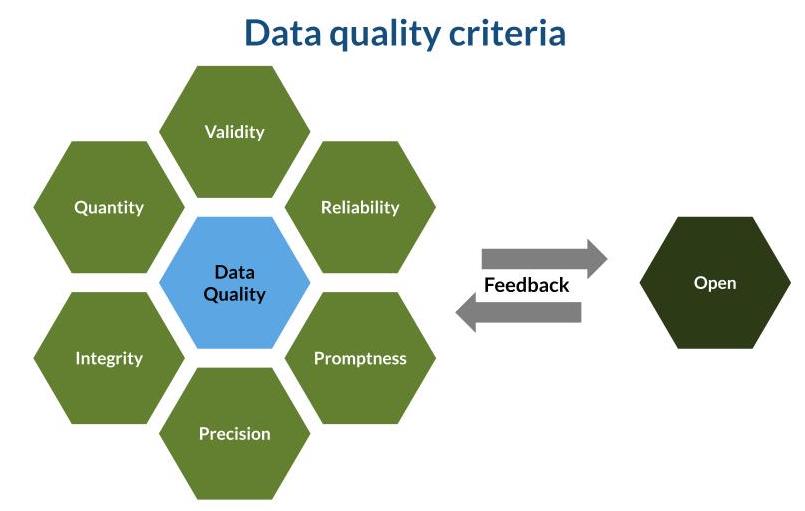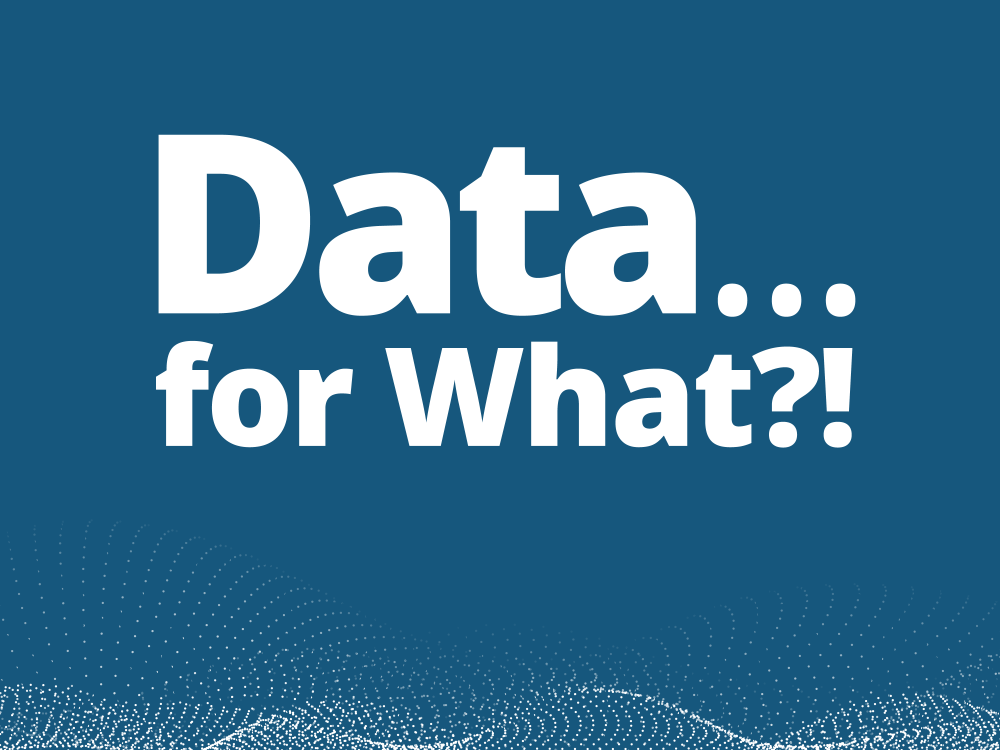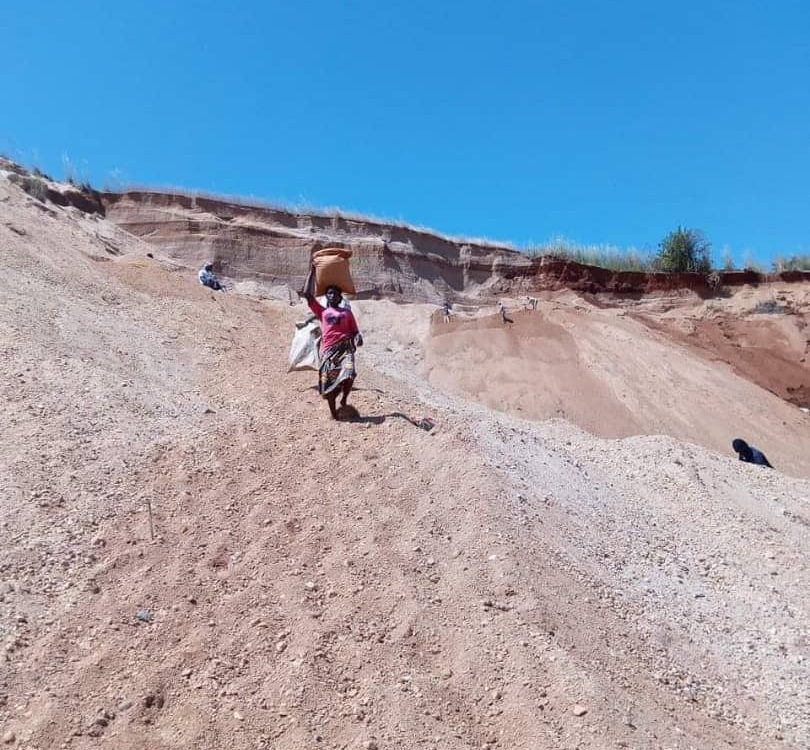When Covid-19 Confirms the Need for Open Contracting in Senegal
This blog was co-written with Open Government Partnership and ONG 3D. Cliquez ici pour lire cet article en français.
Each year, governments spend trillions of dollars through public procurement of goods and services – without a focus on accountability, much can be lost through waste or corruption. Today, more than ever, transparency in public procurement and Open Contracting is needed in Senegal and around the world as governments respond to and recover from the Covid-19 pandemic while working to help the most vulnerable populations.
Procurement in the Time of Crisis
As is the responsibility of all governments, the government of Senegal has been responding to the most urgent health and economic needs of its citizens. A new decree,1 added March 18th, allows the government to use a simplified procedure for purchases in the fight against Covid-19.
Recently, journalists have claimed that there are irregularities in the Senegalese Government’s response plan and in awarding contracts related to the supply and transportation of food and hygiene products intended for vulnerable populations.2 Civil society organizations (CSOs) and citizens have also sounded the alarm, pleading for more transparency regarding these allegations.3 While the government of Senegal and the companies cited in the case have denied any possibility of fraud or collusion, the insinuation of corruption has left lingering questions.
Effective open contracting could resolve these questions. As many public procurement use cases show, open procurement helps provide clear information about decision-making, even when choices are made quickly like in the context of Covid-19. Open source tools could also identify potential corruption in public procurement procedures. By highlighting activities that involve risk factors, and exploring data in Open Contracting Data Standards (OCDS) format, corruption risks are easier to spot.
Senegal’s Investment in Open Procurement and Open Data
The Government of Senegal has already made a significant investment in data collection and open procurement. Providing additional information to interested parties would be a relatively low-effort process, and implementing OCDS would take advantage of an existing institutional framework. Senegal has been a member of the Open Government Partnership (OGP) since 2018, and is working to develop its first action plan within that framework, promoting transparency, accountability, and citizen engagement. OGP takes advantage of new technologies to strengthen governance in partnership with civil society and the private sector – thus offering an opportunity to advance procurement reforms through open data.
Similarly, Development Gateway (DG) partnered with ONG 3D4starting in 2018 to assess the public procurement ecosystem in Senegal and to train stakeholders to better understand public procurement procedures. The program’s goal is to create a dialogue and build synergies between public and private actors and the Public Procurement Regulatory Authority (ARMP), to meet data needs relating to public procurement. With stronger dialogue and data use culture between procurement actors, Senegal can make faster, more efficient decisions based on government, CSO and private sector, and citizen needs.
An Opportunity for Further Openness
 As it weathers the current health crisis, Senegal has an opportunity to be proactive in creating a more open and accountable procurement process. Generally, an open procurement process helps key actors understand each step in the procurement process, and provides public information about contracts awarded. Specifically, an open procurement process would allow for (i) decision-makers to analyze price trends and supplier performance quality to better guide contract awards; (ii) private sector actors to identify opportunities and better understand market competition and dynamics; and (iii) other stakeholders (CSOs, the press, government, and development partners) to identify and combat corruption in public procurement.
As it weathers the current health crisis, Senegal has an opportunity to be proactive in creating a more open and accountable procurement process. Generally, an open procurement process helps key actors understand each step in the procurement process, and provides public information about contracts awarded. Specifically, an open procurement process would allow for (i) decision-makers to analyze price trends and supplier performance quality to better guide contract awards; (ii) private sector actors to identify opportunities and better understand market competition and dynamics; and (iii) other stakeholders (CSOs, the press, government, and development partners) to identify and combat corruption in public procurement.
Further, to promote systematic data use, information must meet several preliminary criteria: it must be reliable, exhaustive, current, easy to understand, and useful. It must also meet unique needs of different stakeholders: for example, DG and ONG 3D learned from our engagement that the private sector is interested in economic opportunities; CSOs in process monitoring and ensuring accountability; and public institutions in measuring process efficiency while reducing the risk of fraud and corruption.
Though the Senegalese government has already invested in procurement data collection, collecting a significant amount of data throughout each phase, most data are still not publicly available. While some data should remain confidential, increased use of analytics can improve procurement quality by increasing value for money, market fairness, and integrity. For example, if the government were to analyze the average time spent on each process phase, contract size, price, quality of deliverables/contract performance, and cost-effectiveness, it would minimize risks by making award decisions based on evidence.5
Potential Barriers
Firstly, while Senegal has shown tremendous capacity for and interest in open procurement, several obstacles remain. The partnership between DG and ONG 3D started with a baseline survey of SMEs and SMIs, press, CSOs, and contracting authorities to assess knowledge of public procurement. Our work revealed that knowledge of the public procurement process remains low for most actors surveyed, including local
elected representatives and parliamentarians. There is a certain comprehension gap between the ARMP and the Central Direction of Public Procurement (DCMP) stakeholders and others who lack understanding of the fundamentals of public procurement. This information gap can lead to misinterpretations, inappropriate interventions, and accusations. The survey results were used to organize capacity-building workshops for SMEs, CSOs, and parliamentarians around public procurement and awareness-raising. Workshops also provided an opportunity for participants to express needs for more accessible, open data to guide interventions.
Second, although Senegal’s ARMP has moved toward more open public procurement procedures by translating the procurement code into Wolof and organizing workshops, these initiatives need to be more focused on publishing data in transparent, understandable, and easy to access formats.
Finally, data use is a skill in itself – whether it is published in tables, reports, or on a website, all actors would benefit from increased data analysis capacity. Specifically, procurement law and procedural data are rarely published in an accessible way, and therefore are almost never referenced or published.
Call to Action
In times of crisis, the concepts of transparency, accountability, and openness should receive more attention, while it may be expected that these are overlooked when so many other competing priorities appear. To highlight where and how some countries are doing this well, OGP launched its Open Response + Open Recovery initiative. This can be a great resource for countries on how to establish transparent, responsible processes during crises.
Senegal has laid a solid foundation in data collection and open procurement, and to fully become an example of effective response, it must invest in data use. Senegal should not pivot away from the open procurement processes already in place. Now is the time to work with citizens, public/private sector, and CSOs more than ever – to build capacity to publish and use open data. Senegal can use Covid-19 as an opportunity to create a long-lasting open procurement policy, and to build on past open contracting successes.
1. The President of the Republic has issued a decree which stipulates that the works, supplies and services carried out in the context of the fight against Covid-19 are not subject to the provisions of the public procurement code.
2. https://www.seneweb.com/news/Societe/covid-19-un-autre-scandale-eclate-dans-l_n_316049.html
3. https://www.seneweb.com/news/Societe/riposte-au-covid-19-apres-le-tolle-sur-l_n_315648.html
4. ONG 3D is a member of the National OGP Committee of Senegal
5. Development Gateway, 2017, Open Contracting Scoping Study, Senegal.
Share
Related Posts

Episode 3, Season 1 | Geography: Expanding & Deepening DG’s Regional Footprint
In Episode 3 of "Data… for What?!", Development Gateway’s new podcast, we explore how we are prioritizing our geographical focus in the coming years. Conversations with Vanessa Baudin Sanchez, Carmen Cañas, and Charlene Migwe-Kagume highlighted the opportunities and challenges of expanding our portfolio in Central America and deepening our work and partnerships in West, East, and Southern Africa.

Une réflexion sur les données des IE
Au cours des dernières années, DG a intensifié sa recherche dans le domaine des industries extractives (IE) en Afrique de l'Ouest, ce qui a permis de mieux cerner les lacunes en termes de données et d'identifier les opportunités du secteur. Nous avons constaté que les informations disponibles au grand public sont principalement axées sur la transparence des flux financiers et ciblent la scène internationale, mais occultent les facteurs non-financiers et l'impact local réel de l'industrie. Une question reste en suspens : comment promouvoir la divulgation de données susceptibles d'appuyer les communautés impactées par les activités extractives ?

A Reflection on the State of Extractive Industry Data
In the past few years, DG has increased focus on the extractives industry (EI) in West Africa and learned tremendously about the data gaps and opportunities in this sector. Overall we are seeing that while data is available, it is focused primarily on financial transparency and geared to a global audience, omitting information on local impacts and non-financial factors. A big question remains: how do we ensure that data is also used to support the communities impacted by extractives?